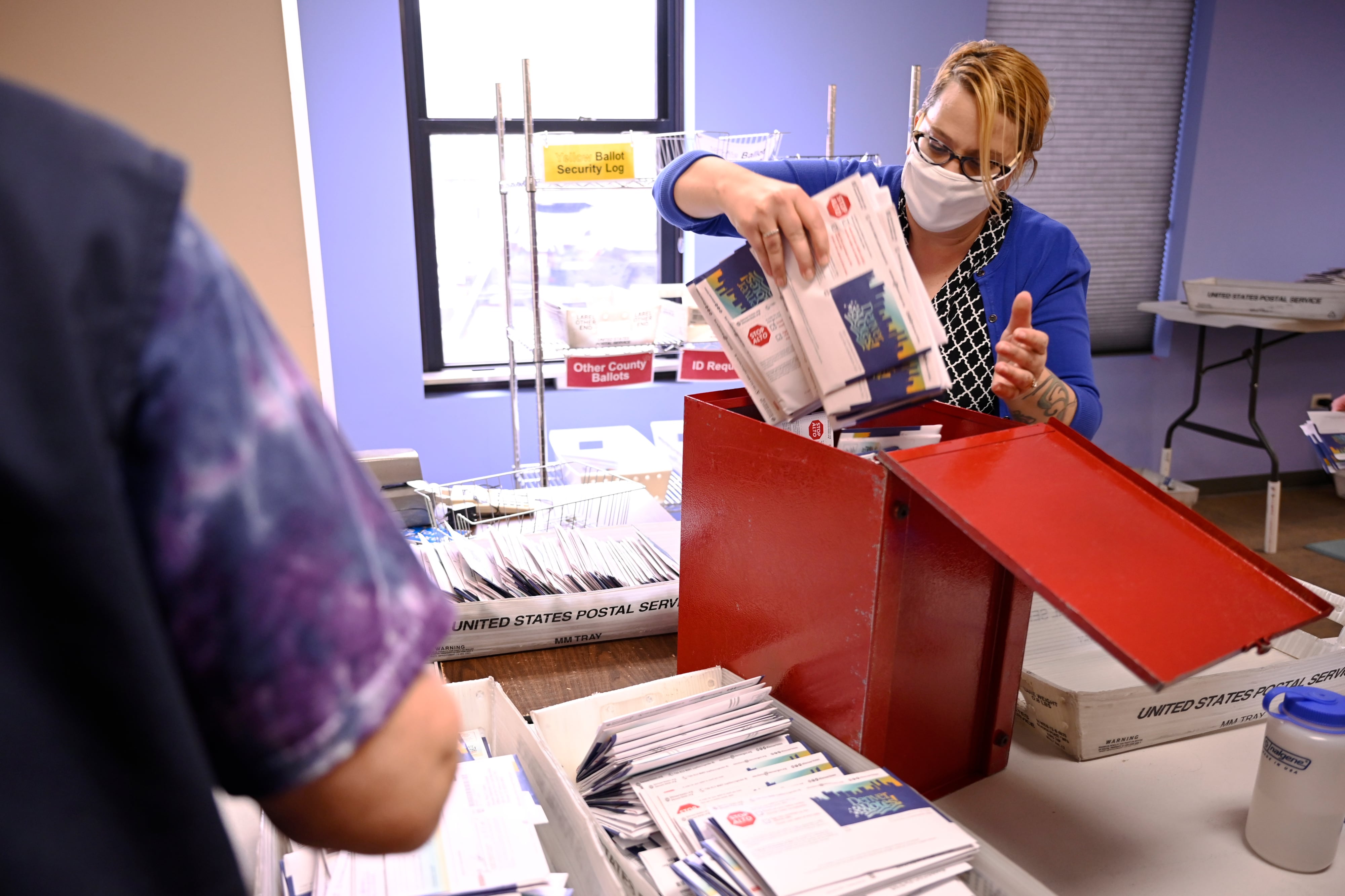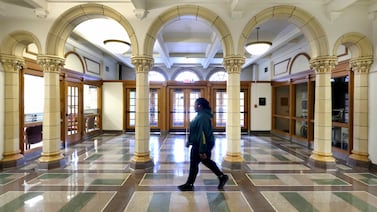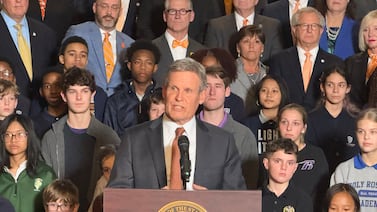Candidates and political committees spent $1.67 million in this year’s Denver school board election, according to final campaign finance reports filed with the Colorado Secretary of State’s office that capture spending through the Nov. 2 election.
The election was a sweep by candidates backed by the Denver teachers union and critical of Denver Public Schools’ past reforms, such as closing schools with low test scores. It marked a complete flip of the board, which was controlled by pro-reform members four years ago.
Reform organizations spent big to try to retain representation on the board but were unsuccessful. Independent expenditure committees funded by groups including the Colorado League of Charter Schools, Education Reform Now Advocacy, and 50CAN spent a little more than $1 million on mailers, digital ads, phone calls, text messages, and door knocking in support of three candidates who lost: Vernon Jones Jr., Karolina Villagrana, and Gene Fashaw.
Independent expenditure committees can spend unlimited amounts of money but cannot coordinate with candidates. This type of spending is often referred to as outside spending.
As in past elections, big-money donors supportive of education reform, including former University of Colorado president Bruce Benson, gave money directly to candidates. Jones, Villagrana, and Fashaw got a combined $72,000 in major donations over $1,000.
But the money didn’t translate to a majority of votes. The campaigns of the four candidates who won — incumbent Carrie Olson and newcomers Scott Esserman, Xóchitl “Sochi” Gaytán, and Michelle Quattlebaum — were largely funded by the Denver and Colorado teachers unions.
The unions gave more than $239,000 directly to the four candidates. A union-funded independent expenditure committee also spent about $176,000 on mailers, digital ads, and door knocking in support of the union-backed slate. Altogether, the teachers unions spent less than half of what pro-reform organizations and donors spent.
Paul Hill, founder of the Seattle-based Center on Reinventing Public Education, said the outsized spending by reform organizations in Denver’s election was likely a sign.
“Putting a lot of money in is a measure of how difficult the political problem was,” Hill said. “In some ways, the spending indicates how much trouble they were in already.”
School board elections are held every two years. In Denver, they’ve gotten more expensive over time. The most expensive in history was in 2019, when spending topped out at $2.28 million. Spending in 2017 totaled $1.54 million, while spending in 2015 totaled $796,082.
The high expense of the 2019 election was partly driven by the candidates themselves. Scott Baldermann, who won a seat, spent more than $386,000, most of it his own money.
That’s far more than Denver school board candidates usually spend, and more than anyone spent this year. Esserman was this year’s highest-spending candidate. He spent $67,636.
The spending totals for all of this year’s candidates are below. The winners are in bold.
At-large, representing the entire city
Scott Esserman: $67,636
Nicky Yollick: $48,950
Vernon Jones Jr.: $33,561
Jane Shirley: $1,663
Marla Benavides: $1,350
District 2, representing southwest Denver
Karolina Villagrana: $56,846
Xóchitl “Sochi” Gaytán: $55,259
District 3, representing central-east Denver
Carrie Olson: $53,719
Mike DeGuire: $41,187
District 4, representing northeast Denver
Gene Fashaw: $43,632
Michelle Quattlebaum: $38,789
José Silva: $11,600
Independent expenditure committees spent far more than the candidates themselves. We’ve tallied their spending below, and noted their donors and the candidates they supported.
Students Deserve Better
Total spent in Denver: $176,451
Funded by: Denver Classroom Teachers Association; Colorado Fund for Children and Public Education, affiliated with the Colorado Education Association
Candidates supported: Esserman, Gaytán, Olson, Quattlebaum
Parents for Great Schools
Total spent in Denver: $445,000
Funded by: Denver Families for Public Schools, a new pro-charter organization; Education Reform Now Advocacy, affiliated with Democrats for Education Reform; 50CAN, affiliated with Colorado’s Transform Education Now; Colorado League of Charter Schools
Candidates supported: Jones, Villagrana, Fashaw
Denver Students, Families, and Teachers United for Excellent Schools
Total spent in Denver: $366,054
Funded by: Education Reform Now Advocacy, affiliated with Democrats for Education Reform; 50CAN, affiliated with Colorado’s Transform Education Now; Colorado League of Charter Schools; Parents for Great Schools; Stand for Children Inc., local donors
Candidates supported: Jones, Villagrana, Fashaw
Raising Colorado
Total spent in Denver: $120,114
Funded by: Education Reform Now Advocacy, affiliated with Democrats for Education Reform; Parents for Great Schools; CLCS Action, affiliated with the Colorado League of Charter Schools; and TEN Collective Impact, affiliated with Transform Education Now
Candidates supported: Jones, Villagrana
CLCS Action
Total spent in Denver: At least $62,000. It’s difficult to calculate an exact amount because its reports do not always delineate how much was spent on Denver school board candidates from how much was spent on school board candidates in neighboring Aurora Public Schools.
Funded by: CLCS Action, affiliated with the Colorado League of Charter Schools
Candidates supported: Jones, Villagrana, Fashaw
Forward Progress
Total spent in Denver: $27,530
Funded by: Education Reform Now Advocacy, affiliated with Democrats for Education Reform; 50CAN, affiliated with Colorado’s Transform Education Now
Candidates supported: Jones, Villagrana, Fashaw






